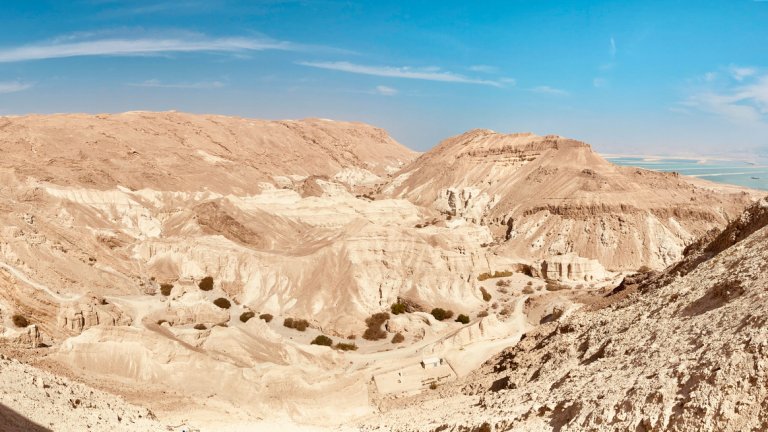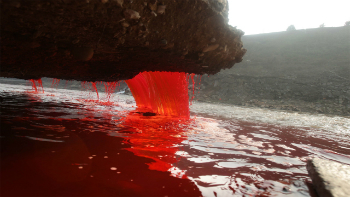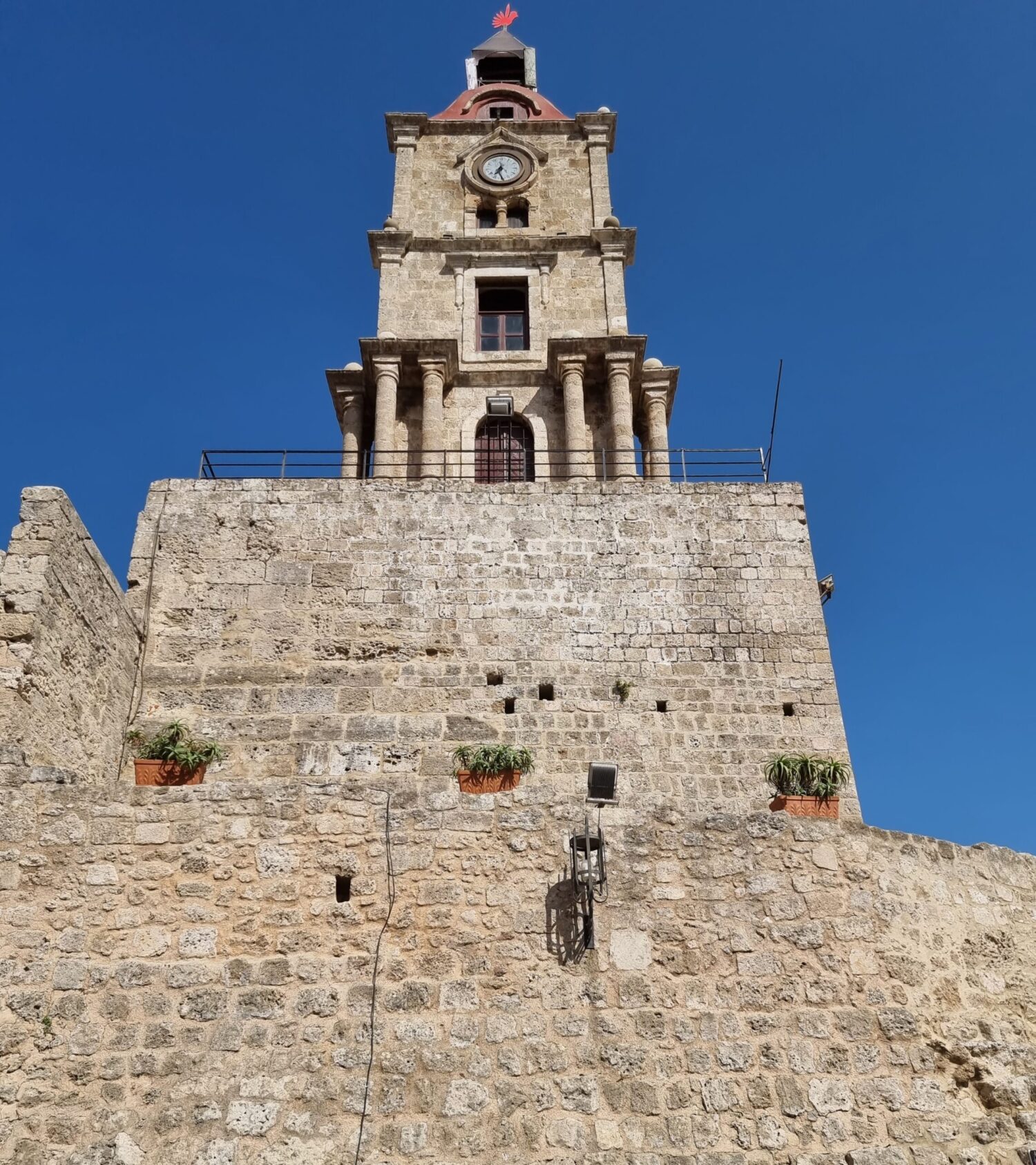It was found next to the entrance to a cave in the Ain Gedi nature reserve, with three pomegranates on one side and a cup on the other
A rare 2,000-year-old coin dating back to the time of the Judean-Roman Wars has been found in the Judean Desert, the Israel Antiquities Authority (ISA) said, citing the Israeli news agency TPS.
Three pomegranates are depicted on one side of the silver half-shekel coin, and a cup is depicted on the other. The words “Holy Jerusalem” are also written.
According to ISA, the coin dates from the year 66 or 67. Jews were under the rule of the Roman Empire, so the minting of coins was a defiant expression of national identity, the ISA said.
Only the Roman emperor had the right to mint coins, and Roman coins almost always depicted the reigning emperor and animals. Yaniv David Levi, a specialist in numismatics at the antiquities office, explained that the half shekel was a special tax that the Jews paid for the upkeep of the Temple and the procurement of animals for sacrifices.
“Coins from the first year of the revolt, like the one found in the Judean Desert, are rare,” Levy said. “During the time of the Second Temple, pilgrims paid a tax of half a shekel to the Temple. The accepted currency for the payment of this tax for nearly 2,000 years was the Tyrian shekel. When the first revolt broke out, the rebels issued these replacement coins which bore the inscriptions ‘Israeli shekel”, “half shekel” and “quarter shekel”.
Temple worship appears to have continued during the rebellion, and these coins were also used by the rebels for this purpose. The discovery was announced during the week of the Ninth of Av, a somber day for Jews commemorating the destruction of the First and Second Temples. This occurs on the ninth day of the Hebrew month of Av (July or August in the Gregorian calendar). During the holiday, which begins Wednesday night at sundown, Jews fast to commemorate the tragic events.
The coin was found while exploring caves in the Judean Desert. It was discovered next to the entrance of a cave in the Ain Gedi nature reserve, which is located near the Dead Sea. “Obviously there was a rebel who wandered the desert rocks and dropped the precious half shekel treasure, and fortunately we were able to find it 2,000 years later and return it to the public,” said archaeologist Haggai Hamer.














